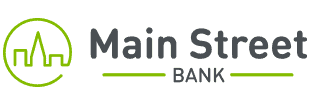Fraud is on the rise. Your best protection is to spot scams and the red flags before you become a victim. We have the tools and resource to help you.
The Do’s and Don’ts to Protect Yourself
Follow these best practices to prevent fraud and unauthorized access to your information and money.
Do set up 2-factor authentication (or Multifactor Authentication) with any companies you do business with, including financial institutions, email accounts, and online shopping.
Do use strong passwords that have a mix of letters, numbers, and special characters (such as, ! @ # $ %), and have at least 12 characters. Use different passwords for different websites and logins.
Do review your bank accounts daily. Use mobile and online banking to check your transactions from anywhere. If you see a transaction you do not recognize or did not authorize, contact the bank immediately.
Do sign up for automatic alerts. You can receive alerts through an email, text message, or both whenever a specific activity occurs on your account or debit card.
Do use a separate computer or device for banking and financial transactions and general internet usage and email, if possible. This will reduce the risk of phishing attacks, malware, or viruses affecting your sensitive financial information and online banking. Avoid using public computers and public WiFi when conducting any type of banking or online purchases.
For businesses, sign up for services, such as Positive Pay and ACH Positive Pay, that help you to filter and block unauthorized activity in your business account.
Do not disclose your personal information unless you can verify who is requesting that information. This includes requests by phone, email, or text. When in doubt, contact the company using their official information. A quick Google search will get you this information.
Do not send money via wire transfer or other digital payment services like Zelle® to anyone you do not know and trust.
Do not share your login information or PINs with anyone. A bank or financial institution will not ask you for this information.
Do not allow someone remote access to your computer unless you initiated contact with the company from a verified phone number or website.
Free Fraud and Security Training
You are your best defense against fraud attacks. In partnership with KnowBe4, a leader in security awareness and training, Main Street Bank offers the following security courses to help you protect yourself at home and in the office.
Home Internet Security Awareness Training: for consumers, individuals, and families who use a computer, laptop, tablet, and any kind of smartphone device at home, this training is for you.
Kevin Mitnick Security Awareness Training: for business owners, managers, and employees, this training helps those in the office identify red flags and protect sensitive business and financial information.
Common Types of Scams
Fraudsters are always looking for new ways to target their victims, but the most common types of scams have been around for years and continue to be used today.
